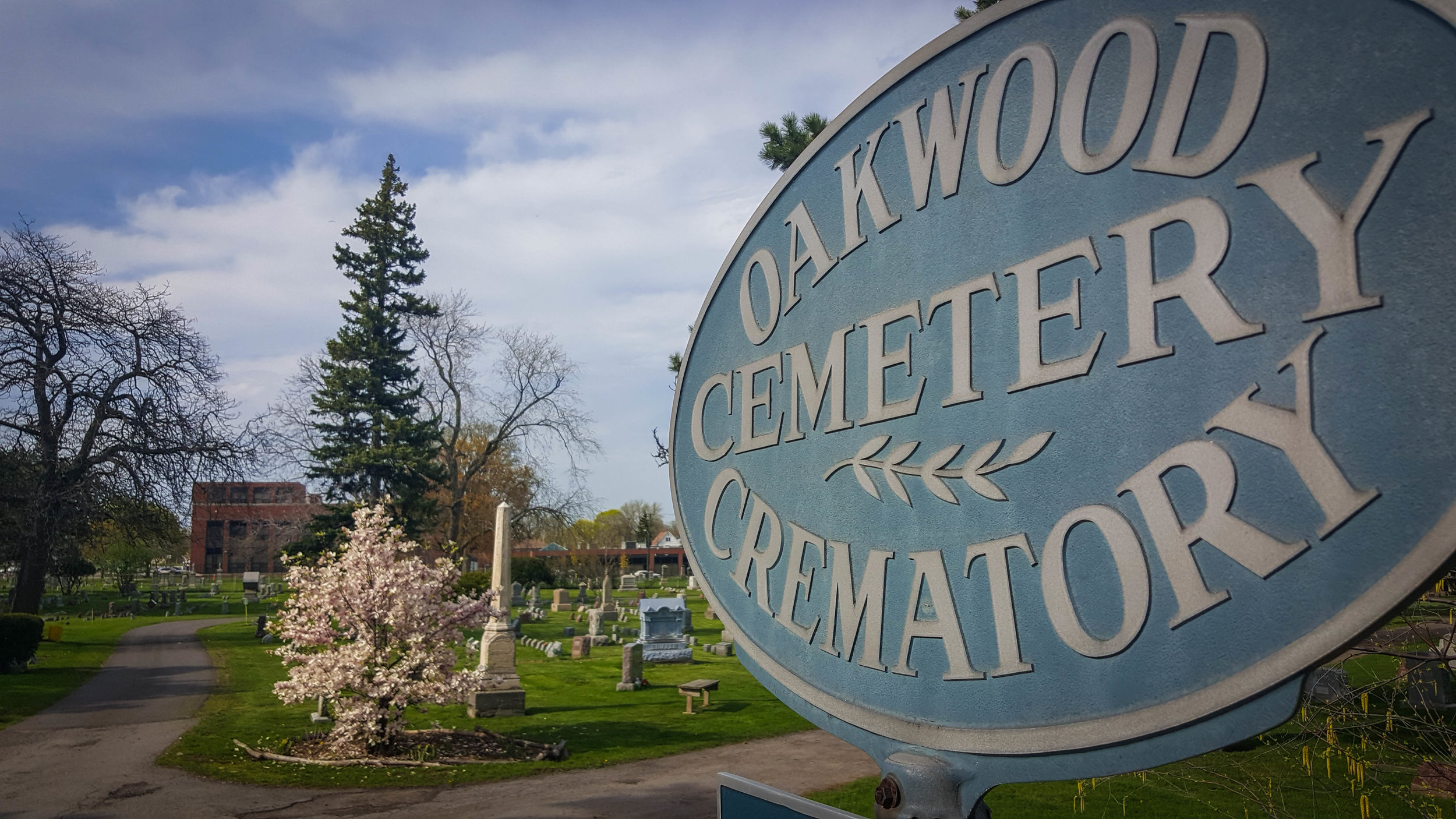About
It all started IN 1852...
Historic Oakwood Cemetery was begun in 1852 on land donated by Lavinia Porter, daughter of Judge Augustus Porter. The Judge was one of the acknowledged founders of Niagara Falls, and one of its largest landowners. The Oakwood landscape we know today dates from an original design drawn in 1852 by noted civil engineer T.D. Judah. Drake Whitney, (nephew to the three Whitney sisters for which Three Sisters' Islands" are named) refined the map in 1882.
In 1913, Oakwood built a magnificent marble mausoleum, designed by the Buffalo architectural firm Green and Wicks. The Oakwood Mausoleum was built to the very highest standards with foot-thick walls of concrete covered by hand cut gray Vermont marble. The exterior features soaring stone columns supporting a centered entrance portico. Within were crypts for over 350 interred individuals, and the interior was faced and floored in white Vermont marble, lit by clerestory windows and two stained glass windows (one by Louis Comfort Tiffany). Huge bronze doors enter into a chapel space centered in the mausoleum.
Oakwood would become the final resting place for families whose names are associated with the growth and development of Niagara Falls as a great industrial city and a world-renowned tourist attraction. Along with the Whitneys, these families include the Schoelkopfs of hydroelectric power fame, the Oppenheims, the Siberbergs, the Pfohls, the Haeberles, the Tattersalls, the Holleys, and both Porter brothers.
Among those buried at Oakwood, one finds Annie Edson Taylor, the first person to travel over the falls in a barrel, Homan Walsh, the young kite flyer whose kite and progressively larger ropes sent the cable across the gorge for the suspension bridge, and the famed "Hermit of Goat Island". The cemetery also includes a memorial to "Comrades of the Grand Army of the Republic" , veterans of the Civil War.
Oakwood today contains many outstanding examples of funerary art including obelisks, sarcophogi, and beautiful statuary. Additionally, the landscape is lush with mature plantings and trees, many dating from the earliest time of the cemetery.
It continues to service the community with the crematory, columbarium, and gravesites, including newly available family plots formed by the expansion of previously smaller burial sites.
